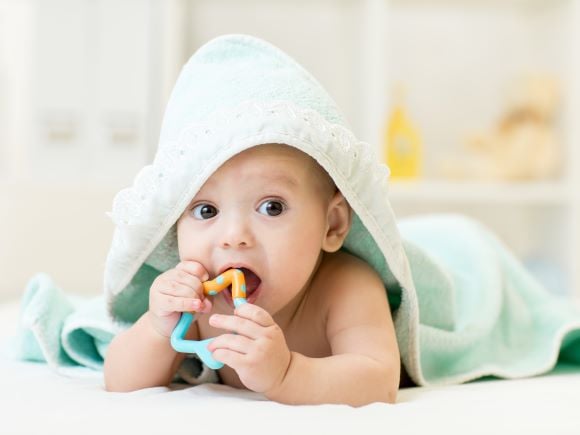This website uses cookies so that we can provide you with the best user experience possible. Cookie information is stored in your browser and performs functions such as recognising you when you return to our website and helping our team to understand which sections of the website you find most interesting and useful.
Bisphenols in baby products: a clear case for a ban

All Euroconsumers members are testing organisations, who provide data to verify whether consumer products are safe and lawful. Testachats and Altroconsumo’s latest chemical tests have detected worryingly high levels of bisphenol A (better known as BPA) and other bisphenols in a range of everyday children’s products like teething rings, sunglasses and shoes.
BPA and other types of bisphenols are endocrine disruptors – they can interfere with our hormonal systems and cause serious health issues including fertility issues and developmental disorders. If ingested they can increase the risk of prostate and breast cancer, obesity and cardiovascular disorders. They are also harmful to wildlife and the environment, especially aquatic life.
Harmful bisphenols are everywhere
Despite the health risks and regulations to restrict their use, bisphenols are widely used in the production of hard plastics (called polycarbonates) found in the lining of food and drink cans, drinking bottles and even baby products like teething rings. It is also present in synthetic fabrics and clothing.
The EU’s REACH (Registration, Evaluation, Authorization, and Restriction of Chemicals) regulations put BPA and two other bisphenols on their list of ‘substances of very high concern’, but many products are falling through the gaps, ending up into children’s hands and mouths. Although the use of bisphenol A (BPA) is prohibited in babies’ cups and bottles by EU law , our tests found high concentrations in many other products that young children and infants regularly use.
Tests for bisphenol contamination in baby and child products
Test Achats, Altroconsumo and six other consumer organizations examined several products to track the presence of bisphenols. We tested for the well-known BPA, as well as other bisphenols (BPB, BPS and GMP) which are also harmful to health.
A total of 179 products were scrutinized:
- 58 pieces of textile, eg tights, blankets and baby bibs
- 11 pairs of leather shoes
- 16 children’s sunglasses
- 20 types of teething toys
- 22 cans of soft drinks
- 35 food cans
- 16 bottles or cups
Results: Bisphenols found in majority of products
We found at least one type of bisphenol in the majority of these products. The most worrying were products that babies or young children use for eating, drinking or to chew on. Tests found bisphenols in:
- 13 out of 20 teething rings
- 8 out of 16 cups and bottle caps
- 11 out of 16 toddler sunglasses
Adults are not spared either, with every food can tested found to contain between one and six different types of bisphenol.
With such prevalence in everyday products, young children risk to be routinely exposed to dangerous chemicals.
Empowering the next generation: How can we shield young consumers against harmful bisphenols?
There are serious challenges to managing the risks of a systemic and dangerous chemical like BPA in everyday products. This has taken on a new dimension with a recent statement from the European Food Safety Agency (EFSA) which lowered the ‘tolerable daily intake’ of BPAs 4 micrograms per kilogram of body weight to just 0.2 nanograms – a 20,000 fold decrease.
This dramatic reduction in what is considered a safe level leaves the European Commission with a decision to make on limiting the use of BPA in different products. Different countries have already set their own stricter limits, for example Belgium, where food packaging for children aged 0 to 3 years cannot contain BPA.
Euroconsumers’ Test Achats and Altroconsumo would like to see much stricter limits, particularly in products used by children and babies:
“Our tests clearly show that bisphenols are ubiquitous in our daily lives, exposing us all to health risks. We demand that the presence of all bisphenols, not just BPA, be banned in all products intended for babies and children, as well as in food containers,” Julie Frère, spokesperson for Test Achats


